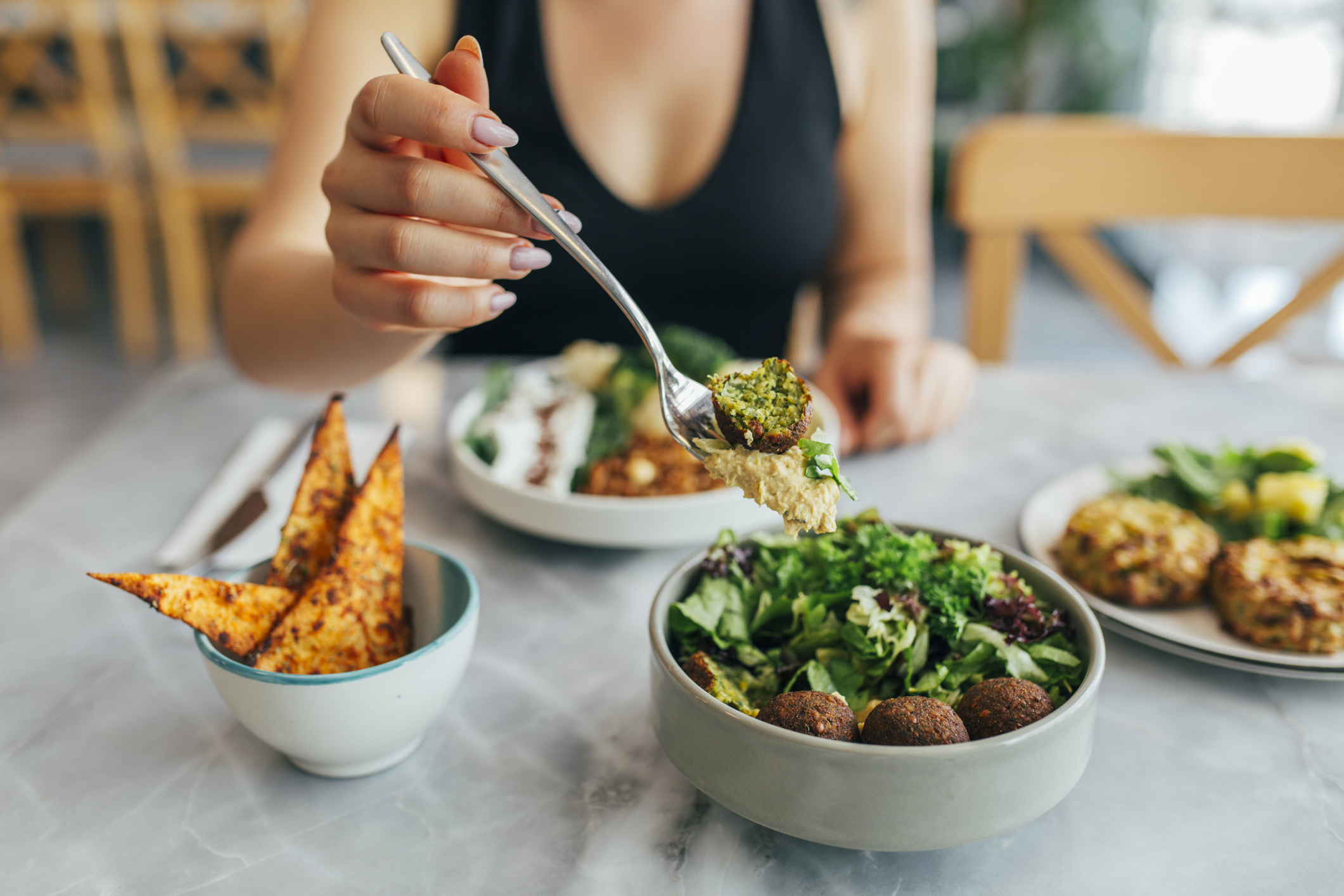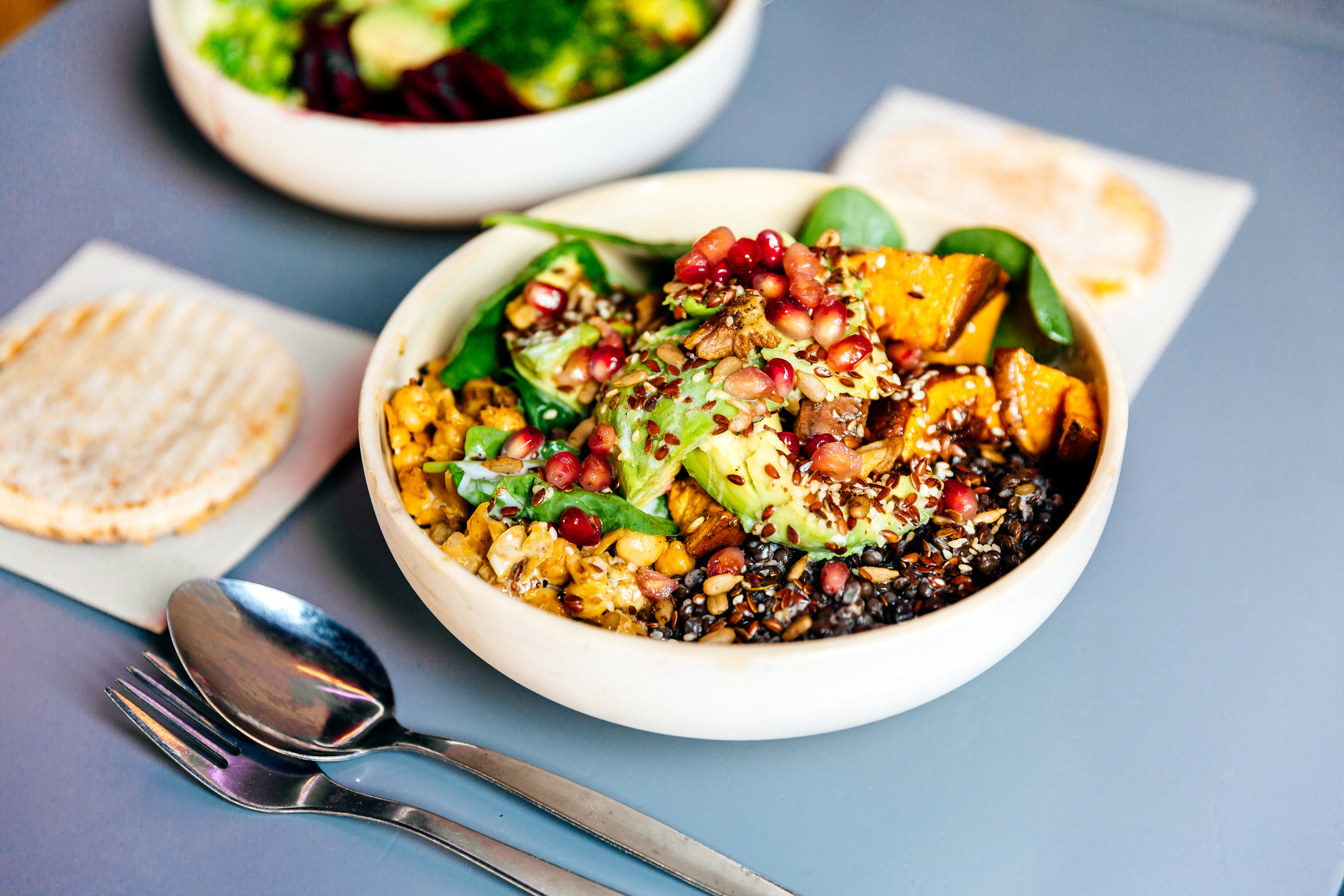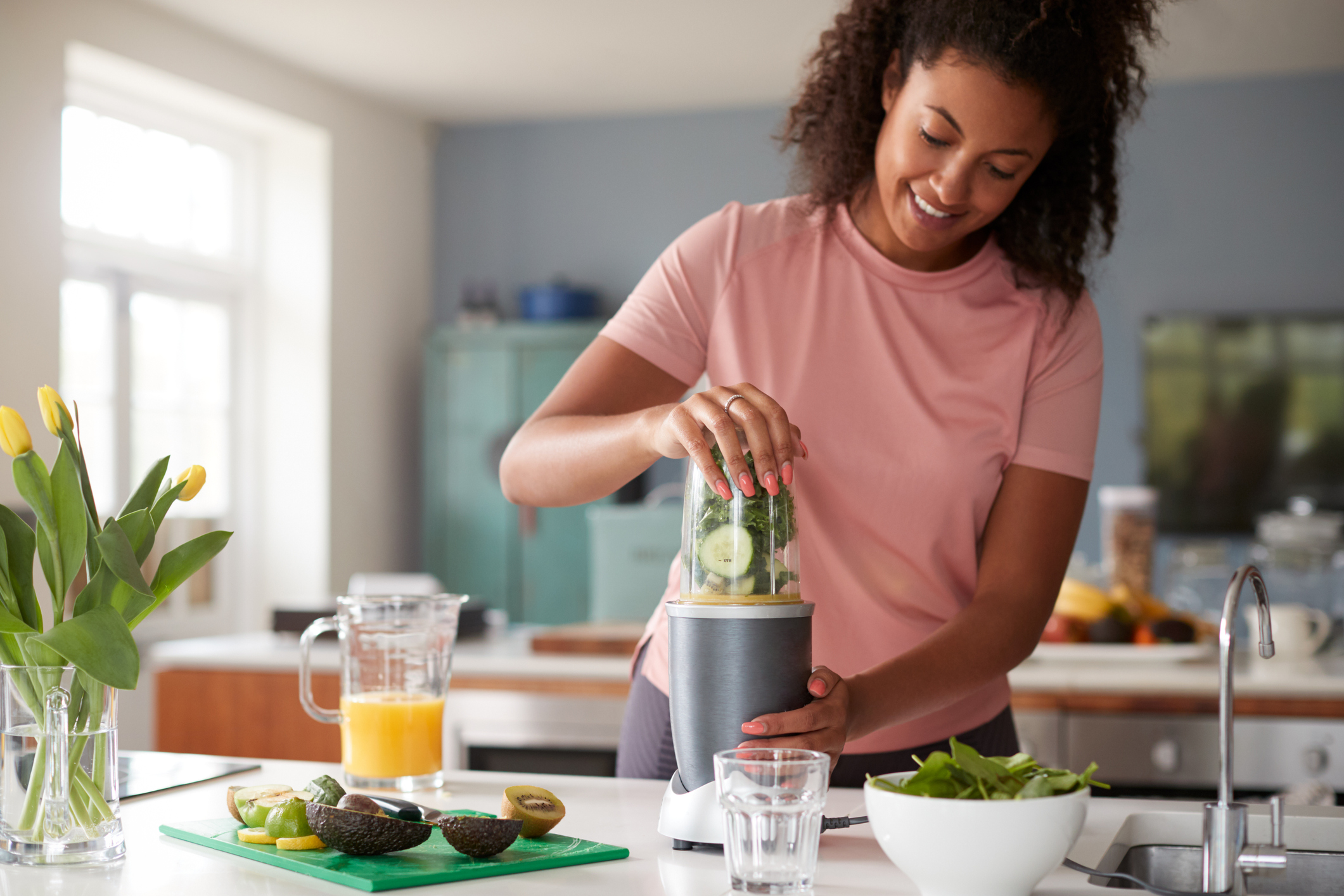
Celebrity news, beauty, fashion advice, and fascinating features, delivered straight to your inbox!
You are now subscribed
Your newsletter sign-up was successful
Read about eating more protein but not sure how to do it sans meat? Let our guide help.
https://www.marieclaire.co.uk/life/health-fitness/vegan-protein-sources-763922If you've read our guide to protein powders for women, you'll know that protein is a pretty important macronutrient when it comes to eating a healthy, balanced diet.
Rather than Google what is protein, let Rohini Bajekal, nutritionist from Plant-Based Health Professionals, explain. Protein is found throughout your body in your muscle, bone, skin, hair, and virtually every other tissue and is key to helping your body run smoothly. "Your body needs dietary protein to supply amino acids for the growth and maintenance of our cells and tissues and is made from twenty-plus basic building blocks called amino acids," she goes on.
Protein is stereotypically found in red meat, such as steak, white meat, like chicken or turkey, and fish, like salmon or cod.
"It's also a popular nutritional ingredient that's often made into drinks, such as smoothies or protein shakes, or snacks, like protein bars and spreads," explains Melissa Snover, registered nutritionist and founder of Nourished.
But, question: what about vegan protein sources? Don't worry - there are actually plenty of plant-based foods high in protein, including seeds, nuts, tofu, and more. Keep scrolling for your complete guide, and don't miss our guides to following a vegan diet, what to eat after a workout, and vitamin D recipes, while you're here.
Vegan protein: your guide
What is vegan protein?
As Snover explains, protein is a macronutrient that is essential for our bodies to build muscle mass, repair tissues, and make hormones and enzymes.
Celebrity news, beauty, fashion advice, and fascinating features, delivered straight to your inbox!
"While protein is most commonly found in animal products, it is also present in other sources, such as vegetables and nuts," she shares.
Is it possible to have a healthy high protein diet when vegan? Short answer: yes, you just need to make sure you are eating a variety of the right foods. "Some vegan alternatives on the market are over-processed and contain much less protein than the meat based equivalent, so its key to be an avid label reader when making choices," she goes on.

What - nutritionally speaking - is protein good for?
As the building blocks in your body, high protein diets are linked to countless health benefits, from quicker recovery from injuries, lower blood pressure to less intense food cravings, explains the nutritionist.
"There is also growing research linking a high protein intake to better metabolic health and in turn, weight management," Snover explains. "Protein is the most filling macronutrient - more so than carbs or fat - and it increases levels of peptide YY, a hormone which makes you feel full, and simultaneously reduces ghrelin levels, your ‘hunger hormone’, helping you feel full and satisfied for longer."
So, in short, there are a whole host of reasons getting enough protein is important - especially as a vegan.
- Vegan protein foods are usually high in fibre, micronutrients, and phytochemicals
- Vegan protein foods are usually low in compounds such as saturated fat and dietary cholesterol.
- Swapping animal protein for vegan protein lowers risk of chronic diseases such as Type 2 diabetes and cardiovascular disease.
- Vegan protein sources have clear environmental benefits - production of animal-based foods tends to have significantly higher greenhouse gas emissions than producing plant-based foods.
- Replacing animal protein with plant protein has been found to reduce the risk of early death.
How much protein do you need per day?
Fun fact: the recomended intake is is 0.75g of protein per kg of body weight per day for average-weight adults - that's 45g a day for an adult weighing 60kg. The more active you are, the more protein you'll need to eat. "Athletes will require more protein than the average person, but this is dependant on their individual sport and training," Bajekal shares.
Similarly, individual needs vary across the lifespan - as you get older, your body will require more as how much protein you eat can affect everything from bone health to muscle strength.

Do vegans need more protein than meat-eaters?
Short answer: no, but they may need to eat more to hit the same macros as a meat eater. That is, there's a 27g of protein in a chicken fillet, but 19g in a serving of chickpeas, simply meaning you'd need to eat more to get the same amount of protein.
"Vegans who are eating a variety of foods including legumes - that's beans, peas, tofu and so on - and meeting calorie requirements, do not need to stress about protein," shares Bajekal.
5 common vegan protein misconceptions or myths
1. A high protein diet damages your liver
There is a longstanding misconception around high protein intake damaging your kidneys. "This is false," shares Snover. "It's only applicable to people with a pre-existing kidney problem."
2. All protein is good protein
There is also a common misconception, particularly amongst those that enjoy working out and weight training, that all protein is good protein. "Like all food, it is important to check where the protein is sourced from, what the carb content is (preferably less than 5 grams per serving for a protein source) and if any artificial colours, and flavourings have been added in," shares Snover.
3. You can't get enough protein as a vegan
Incorrect - as this article has proven, there are plenty of vegan protein sources readily available which make eating enough protein totally doable.
4. Vegan protein sources aren't "complete" proteins
Also incorrect. "All plant foods contain all essential amino acids," explains Bajekal. "You can easily meet protein needs by eating protein-rich foods, whether from plant or animal sources."
Fun fact: soya, such as tofu and tempeh, provides protein with a biological value similar to that of animal protein and contains all nine amino acids. "150g of Tempeh provides 25g protein and two cups of soya milk have 12g of protein," she goes on.
5. You must supplement
While protein powders can be an easy way to hit your daily requirements, they aren't essential - you can get enough in your day-to-day diet from food sources alone.

Ally is Marie Claire UK's Senior Health and Sustainability Editor, a well-regarded wellness expert, ten-time marathoner, and Boston Qualifying runner.
Utilising her impressive skillset and exceptional quality of writing, she pens investigative, review and first-person pieces that consistently demonstrate flair and originality.
As well as writing, Ally manages a team of freelancers, oversees all commissioning and strategy for her pillars, and spearheads the brand's annual Women in Sport covers, interviewing and shooting the likes of Mary Earps, Millie Bright, and Ilona Maher. Shortlisted for three BSMEs and winning one in 2022, Ally lives and breathes her verticals: her eye for a story and connections within the wellness sphere are unrivalled. Follow Ally on Instagram for more.
